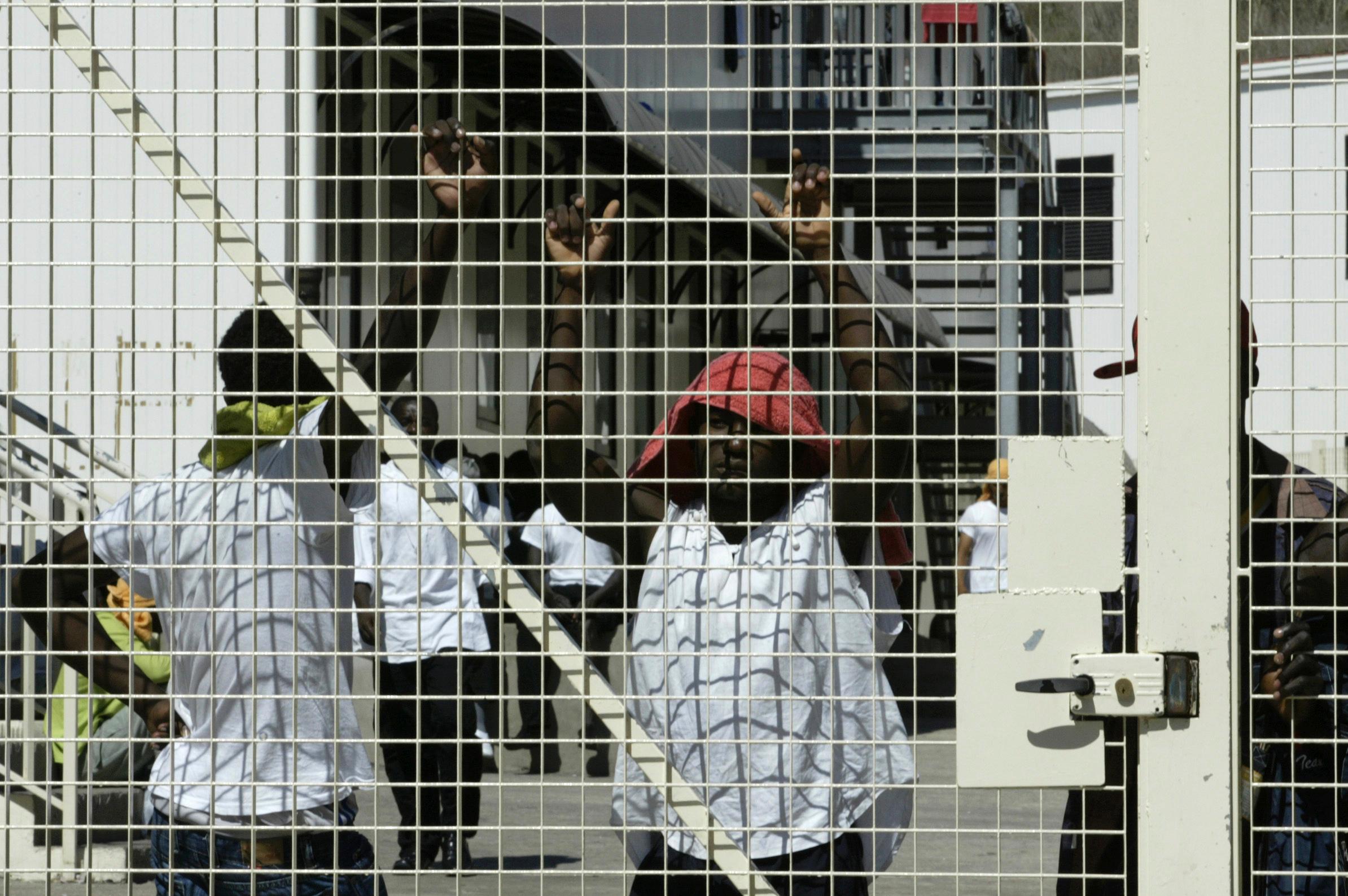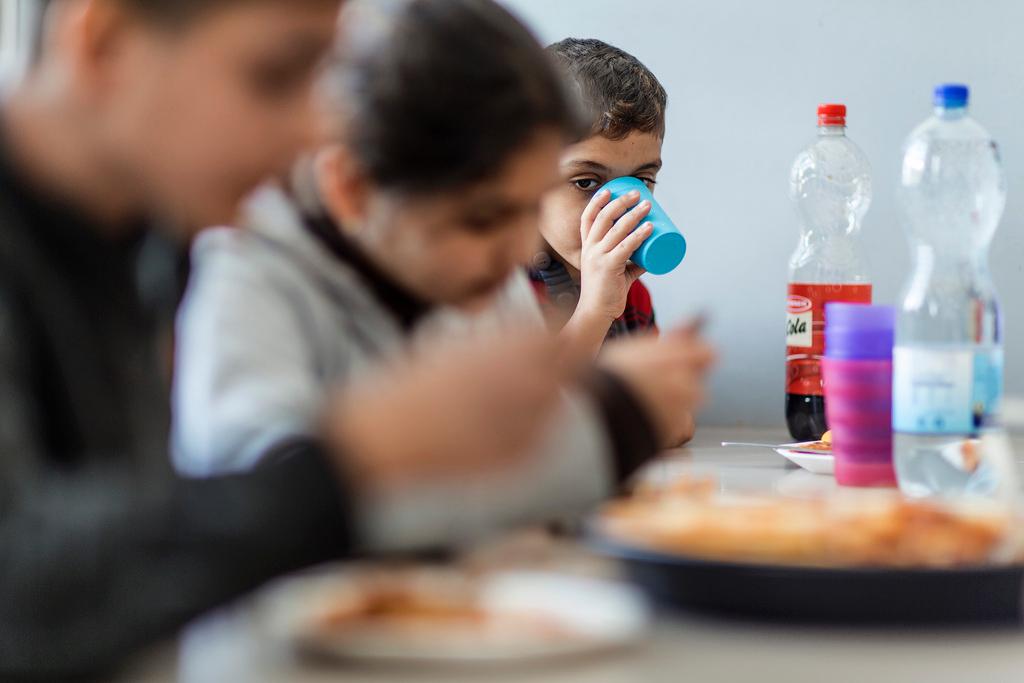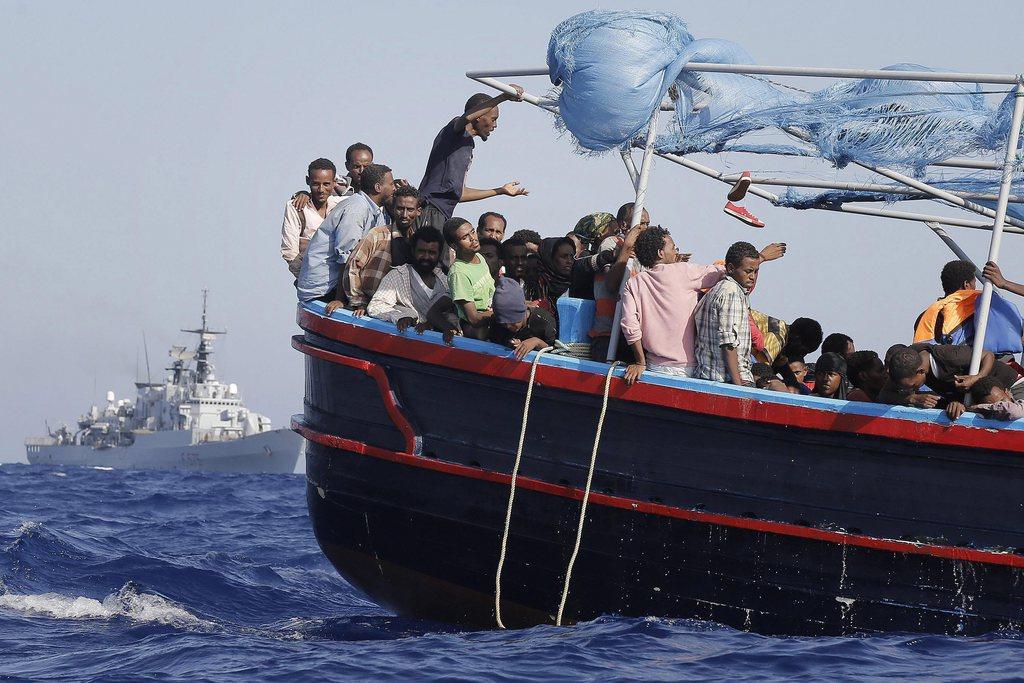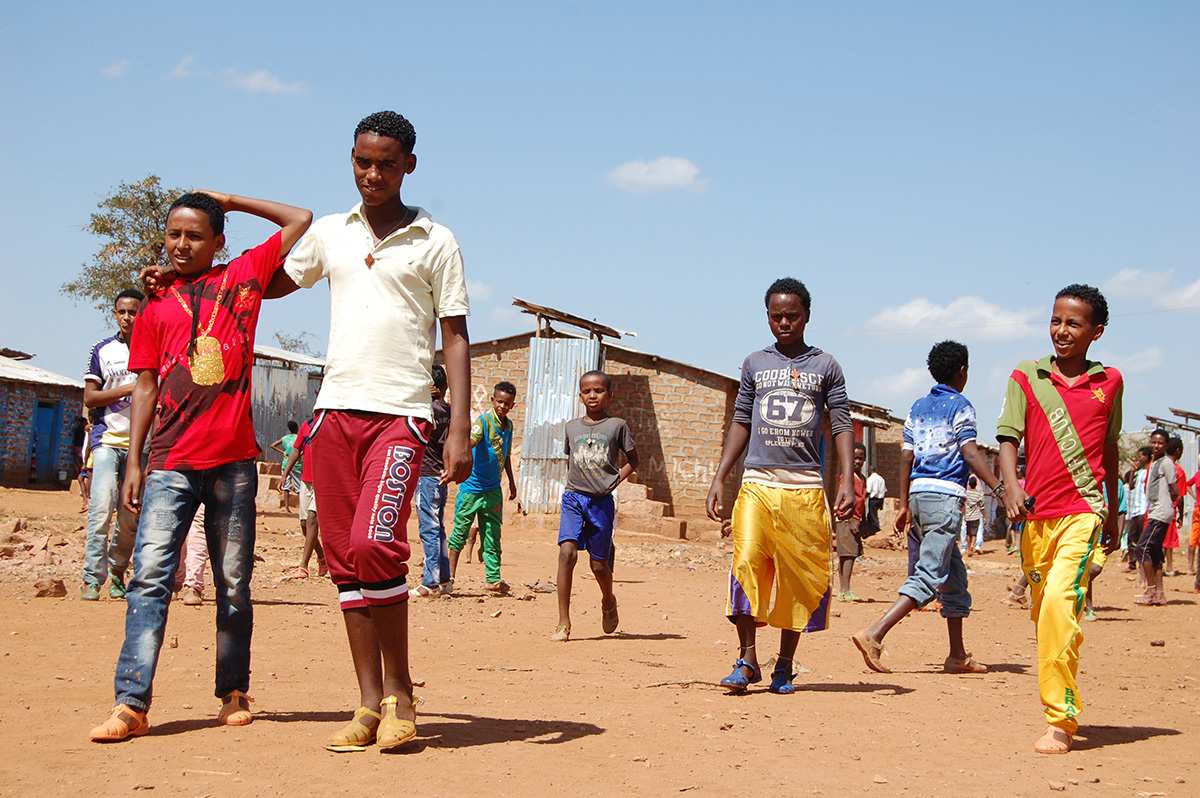Afghan family decision is ‘change of direction’

Vulnerable asylum seekers can no longer be systematically sent back to Italy, says the European Court of Human Rights, in a decision against Switzerland. The landmark ruling could raise questions about current European and Swiss practices, says a family supporter.
The Strasbourg court on Tuesday said Switzerland could not send a family of Afghan asylum seekers, including six children, back to Italy without individual guarantees over their care. Judges maintained that, given the state of accommodation for asylum seekers in Italy, Switzerland would violate Article 3 of the European Convention of Human Rights, which forbids inhuman or degrading treatment.
It is the first time the court has ruled against sending back asylum seekers to Italy. For Philippe Bovey, from the non-governmental Protestant Swiss Church Aid organisation, which took the family’s appeal to Strasbourg, the ruling recognises “the seriousness of the accommodation conditions in Italy”.
It also calls into question the Dublin Agreement, by which Switzerland can send rejected asylum seekers back to the first European country where they were registered, which Bovey says doesn’t take into account the individual nature of asylum seekers’ cases.

swissinfo.ch: The court’s ruling over the Afghan family does not mean an absolute ban on sending people back to Italy, as is the case with Greece. What is its significance?
Philippe Bovey: The court has formulated clear demands in terms of procedure. It has said that Switzerland should ask for and obtain from Rome proper information and detailed guarantees about the accommodation conditions for asylum seekers before they are sent back to Italy.
It’s an extremely important element, which means a change in direction in asylum policy for both Switzerland and Europe. In practice, Dublin cases can no longer be considered in an automatic, undifferentiated and stereotyped way, but have to be analysed on a case-by-case basis. These requirements do not just apply to the Afghan family but to all families and vulnerable people who are subject to being returned to Italy.
The Greece case is completely different. In Greece, in addition to a lack of accommodation, the right to a fair hearing is also not respected – a right which is guaranteed in Italy.
swissinfo.ch: What do you mean by vulnerable people?
P.B.: It’s difficult to say exactly at the moment. The judgement said clearly that, in the case of a family, it is necessary to ensure that the more pressing needs of the children are respected and the right to family unity is protected. I should think that this requirement could be similarly applied in cases concerning the ill, unaccompanied minors or old people.
swissinfo.ch: The obligation for Switzerland to obtain these guarantees in cases concerning vulnerable people could hinder attempts to speed up the overall process, as promised by Justice Minister Simonetta Sommaruga – a move partially supported by your NGO.
P.B.: I wouldn’t put it in those terms. You can’t speed up the process if it is to the detriment of asylum seekers and their rights – with the risk of threatening a family’s dignity or exposing children to treatment that is not appropriate to their ages. The Federal Office for Migration and Sommaruga have always maintained that reform of the asylum procedure – which calls for faster decision-making in individual cases – would go hand in hand with boosting asylum seekers’ rights. I want to believe the government when it says these two aspects can and should be pushed through at the same time.
swissinfo.ch: The judges did not mince their words when describing the situation in Italy’s refugee centres, citing overcrowded housing, poor hygiene and a violent environment. Is it really that bad?
P.B.: To take just one figure, which hasn’t been contested by either the Swiss migration authorities or the Italian government: there are currently about 60,000 people registered as asylum seekers and people with refugee status in Italy, but there is housing available for 8,000-9,000 people.
So what about the other 50,000 who can’t find a place in the shelters? Chances are that these people have to fend for themselves. Some might manage, while others find refuge emergency shelters or seek help from NGOs. Others end up living on the street.
There are known cases of asylum seekers sent back to Italy and later returned to Switzerland who told us that they spent their nights in a railway station for months.
swissinfo.ch: Rome was not condemned directly by the court, but Italy’s asylum system was found flawed. Is the verdict a political compromise to avoid undermining the Dublin accords – regulating asylum issues between European countries?
P.B.: It’s probably a fair assumption. The Protestant church leaves it up to others to comment on the ruling. But there is no denying that the judges for the first time clearly recognised the poor conditions in Italy. They could have come to another conclusion: an outright ban for people to be sent back.
The court instead chose to raise the bar considerably, demanding case-by-case guarantees.
We honestly could not have expected such a verdict, but now we can accept it very well.
swissinfo.ch: It did not take the rightwing Swiss People’s Party long to slam the ruling as subjugating Switzerland to foreign judges. Could the latest ruling help fuel support for a People’s Party proposal to put Swiss law above international law?
P.B.: The verdict is an encouraging signal and we can be proud of it. Human rights must not be just a political slogan or a term discussed among diplomats. It has a true value. I say this as an individual. The ruling won’t have an impact on those who do not believe in the importance of human rights.
On the other hand, those who are convinced that Switzerland has to live up to its humanitarian reputation are probably quite pleased. Switzerland has no reason to be ashamed because of the verdict. Instead we can be proud that our country applies human rights correctly even under difficult conditions.
swissinfo.ch: There might be no reason to be ashamed, but Switzerland was rapped over the knuckles by the European Court…
P.B.: The judges chose their words carefully, often using the conditional tense. For instance it said that Switzerland would violate article 3 of the European Convention of Human Rights if it were not to seek the necessary guarantees. Technically speaking, although Switzerland has been given a severe warning, it has not been formally condemned.
Moreover, there is a difference between a state which respects human rights and one which does not. The former accepts criticism and being questioned. It’s the countries which put themselves above any form of criticism which should probably start worrying seriously.
Official reaction
“The court’s verdict marks a turning point in law concerning the European Convention of Human Rights, which until now had rejected all requests without requiring guarantees,” said the Federal Office of Justice in a statement.
Federal Office for Migration spokesman Martin Reichlin said the office was “satisfied with the fact that it remained possible in principle to send people back to Italy and that it would examine closely the court’s 60-page verdict”.
He added: “As part of its Dublin cooperation, the migration office will liaise with Italy to ensure that the demands of the court – for this concrete case and similar cases – are observed as quickly as possible.”
Dublin agreement
Under the Dublin agreement, which Switzerland joined in 2008, Switzerland can send rejected asylum seekers back to the first European country in which they were registered. This country is then responsible for dealing with cases and repatriation if an applicant is rejected.
In 2013, 3,167 people received asylum in Switzerland, a quarter more than in 2012. The overall recognition rate was 15.4%. The authorities received 21,465 applications, according to the Federal Migration Office.
(Adapted from Italian by Isobel Leybold-Johnson and Urs Geiser)

In compliance with the JTI standards
More: SWI swissinfo.ch certified by the Journalism Trust Initiative













You can find an overview of ongoing debates with our journalists here . Please join us!
If you want to start a conversation about a topic raised in this article or want to report factual errors, email us at english@swissinfo.ch.